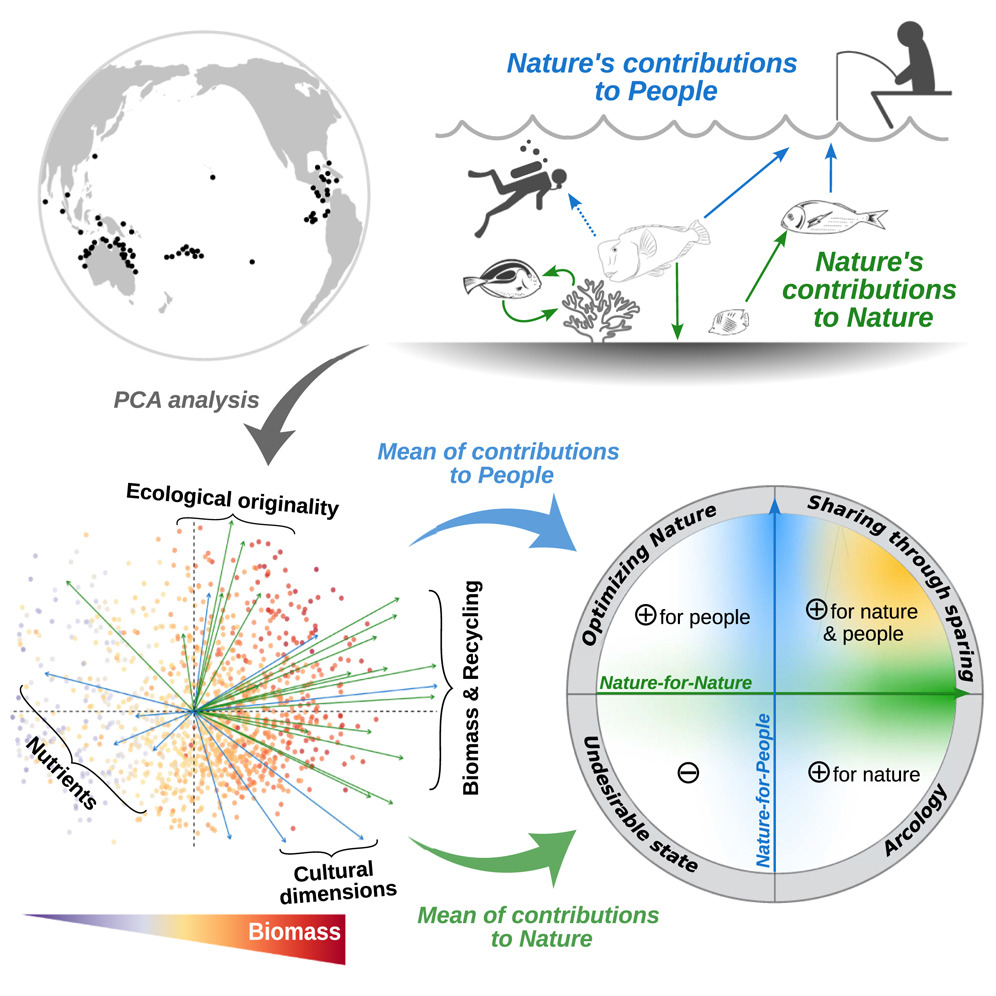FISH COMMUNITIES CAN SIMULTANEOUSLY CONTRIBUTE TO NATURE AND PEOPLE ACROSS THE WORLDS TROPICAL REEFS
Flandrin U., Mouillot D., Albouy C., Bejarano S., Casajus C., Cinner J., Edgar G., Ghilardi M, Leprieur L., Loiseau L., MacNeil A., Maire E., McLean M., Parravicini V., Pellissier L., Schiettekatte N., Stuart-Smith R., Villeger S. & Mouquet N. (2024).
One Earth 7, 1772–1785. DOI:10.1016/j.oneear.2024.09.011
Anthropogenic activities are eroding biodiversity and its contributions to nature and people worldwide. Yet, the dual imperative to protect nature and sustain human well-being raises potential trade-offs that remain to be quantified. Using standardized fish surveys across 1,237 tropical reefs worldwide, we converted the presence and abundance data of 1,024 species into 29 fish community contributions that primarily benefit either nature or people. We show that “nature-for-nature” contributions are mostly positively correlated with total fish biomass, while “nature-for-people” contributions are more independent. Trade-offs among contributions are not the rule, with some tropical fish communities simultaneously providing high levels of different contributions. High mean contributions have been found in all tropical oceans, so sustaining healthy tropical reefs while promoting human well-being seems achievable within most countries, rather than mutually exclusive. Our framework offers an opportunity to explore different management strategies and pathways on tropical reefs between the use and the sparing of nature toward more favorable and sustainable ecological and social futures.
